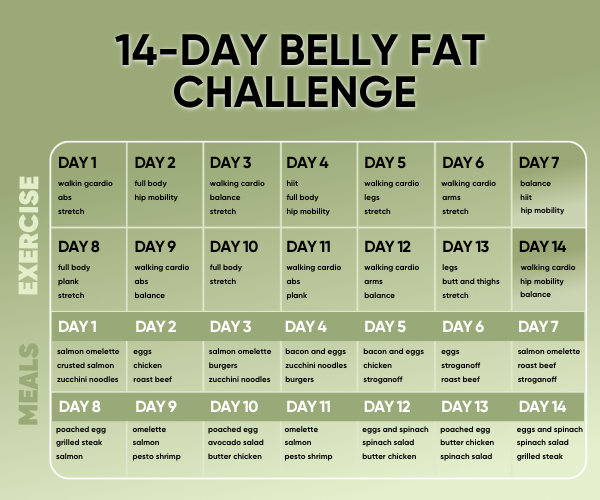
Have you ever reached for your keys, only to find them clutched tightly in your hand? Or have you entered a room and forgotten why? These forgetful moments can be frustrating, especially as we get older.
But before you assume that your memory is getting worse, you should know that chronic stress could be the cause of your forgetfulness.
Stress can have a significant impact on our memory, particularly our short-term memory. In fact, there are many factors that affect the link between stress and memory loss. Knowing these factors can help you protect your mental health.
Let us explore the interesting connection between stress and memory loss and ways to stay mentally sharp and reduce stress.
Can Stress Cause Memory Loss? Absolutely!

Stress is a normal reaction of the body to outside stimuli or internal pressures. When you are stressed, your body releases a series of hormones, such as adrenaline and cortisol, to get you ready for what you think is a threat. This stress response can be helpful for short periods of time, but long-term or chronic stress 1 can hurt many body functions, including memory.
The stress hormone cortisol floods the body, making it hard for the hippocampus to do its job of making memories. Studies 2 show that having high levels of cortisol for a long time may shrink the hippocampus, which can make it harder to remember things.
A study 3 found a link between middle-aged adults who are constantly stressed and having trouble remembering things. This is concerning because menopause, caring for aging parents, and empty nest syndrome make women over 50 more susceptible to chronic stress.
Menopause-related hormonal changes can make the stress impact on memory worse 4 for women over 50. Changes in estrogen levels can affect how the brain works, which could make the effects of stress on memory even worse. In addition, caring for elderly parents or transitioning careers can increase stress for women in this age group.
One thing that should be kept in mind, though, is that not all stress is bad for memory. Acute or short-term stress 5 can actually help you remember things by making you more alert and activating the fight-or-flight response. Constant, unchecked stress is what is more dangerous to your brain.
READ ALSO: Here’s How Effective Melatonin is for Memory and Longevity
The Effects of Chronic Stress on Memory

For women over 50, chronic stress can have serious effects on their memories. If this happens, it could have the following effects:
Impaired memory formation or memory loss: Chronic stress can make it harder to store new information in long-term memory. This can make it hard to learn new things, names, or details and remember them. You find yourself frequently misplacing everyday items such as keys, phones, glasses, etc.
Difficulty retrieving memories: Even if memories are successfully formed, chronic stress can hinder the ability to retrieve them when needed. Infuriatingly, this can cause people to forget important dates or information. Did you have lunch with a friend yesterday? What did you talk about? Chronic stress can make it hard to retain information.
Reduced working memory capacity: Chronic stress can hurt your working memory, which lets you temporarily store and change information. This can affect your ability to multitask, follow complex instructions, or engage in problem-solving activities. It can be hard to focus and remember things when you are mentally worn out during the day.
Accelerated cognitive decline: Being exposed to high levels of stress hormones for a long time has been linked to a higher risk of cognitive decline and dementia later in life. This shows how important it is to deal with stress if you want to keep your brain working well as you age.
If you’re experiencing these issues, it’s important to address the underlying stress and take steps to improve your memory.

The Role of Extreme Stress in Memory Loss

Chronic stress can slowly and sneakily hurt your memory, but extreme or traumatic stress can also make it very hard 6 to remember things. Traumatic events, like accidents, natural disasters, or abuse, can make the body’s stress response so strong that it makes it hard for the brain to remember things.
Sometimes extreme stress can lead to dissociative amnesia 7 , the inability to recall important personal information or events, often related to the trauma. This could lead to memory gaps or even the loss of all memories related to the traumatic event.
Post-traumatic stress disorder (PTSD) has also been linked 8 to memory problems, such as unwanted memories, flashbacks, and trouble remembering events from one’s own life.
Professional support and evidence-based therapies can help you manage extreme stress and recover from memory loss.
Strategies to Improve Your Memory When Stressed

While the impact of stress on memory can be concerning, there are various strategies you can employ to reduce stress levels and enhance your cognitive abilities. Here are some effective approaches:
Practice mindfulness and meditation. Meditation, deep breathing exercises, yoga, and other mindfulness practices can help you feel less stressed and focus and pay attention better every day. These are all important for making and remembering memories.
Make exercise a regular habit. Research10 has shown that being active can help your brain in many ways, like making your memory better and lowering your risk of cognitive decline that comes with getting older. Along with strength training, you should do at least 150 minutes of moderate aerobic activity each week.
Prioritize rest and sleep. Getting enough sleep is important for memory retention and brain health in general. Aim for 7 to 9 hours of good sleep every night, and make sure you take breaks throughout the day to lower your stress and clear your mind.
Keep your diet balanced. A healthy diet full of fruits, vegetables, whole grains, and lean proteins can give your brain the nutrients it needs to work at its best and lower inflammation, which can speed up cognitive decline.
Get social support. Making and keeping strong social connections can help you deal with stress and improve your health in general. Talk about your feelings and get emotional support from friends, family, or support groups.
Try other stress-reducing techniques. Learn healthy ways to deal with stress by trying techniques like progressive muscle relaxation, guided imagery, or cognitive-behavioral therapy (CBT).

Closing Thoughts
Every once in a while, we all forget things. But if you know how stress affects memory and use these stress-reduction tips, you can get back in control and keep your mind healthy and sharp.
Do not let stress take away your precious memories; use these tips and make self-care a priority.
Consider seeing a doctor or mental health professional for stress-related memory issues or stress management advice. They can give you personalized assessments, recommendations, and support to succeed on this journey.
Keep in mind that a sharp memory is powerful, and you have the power to keep it that way!
♡ Love ♡,



















